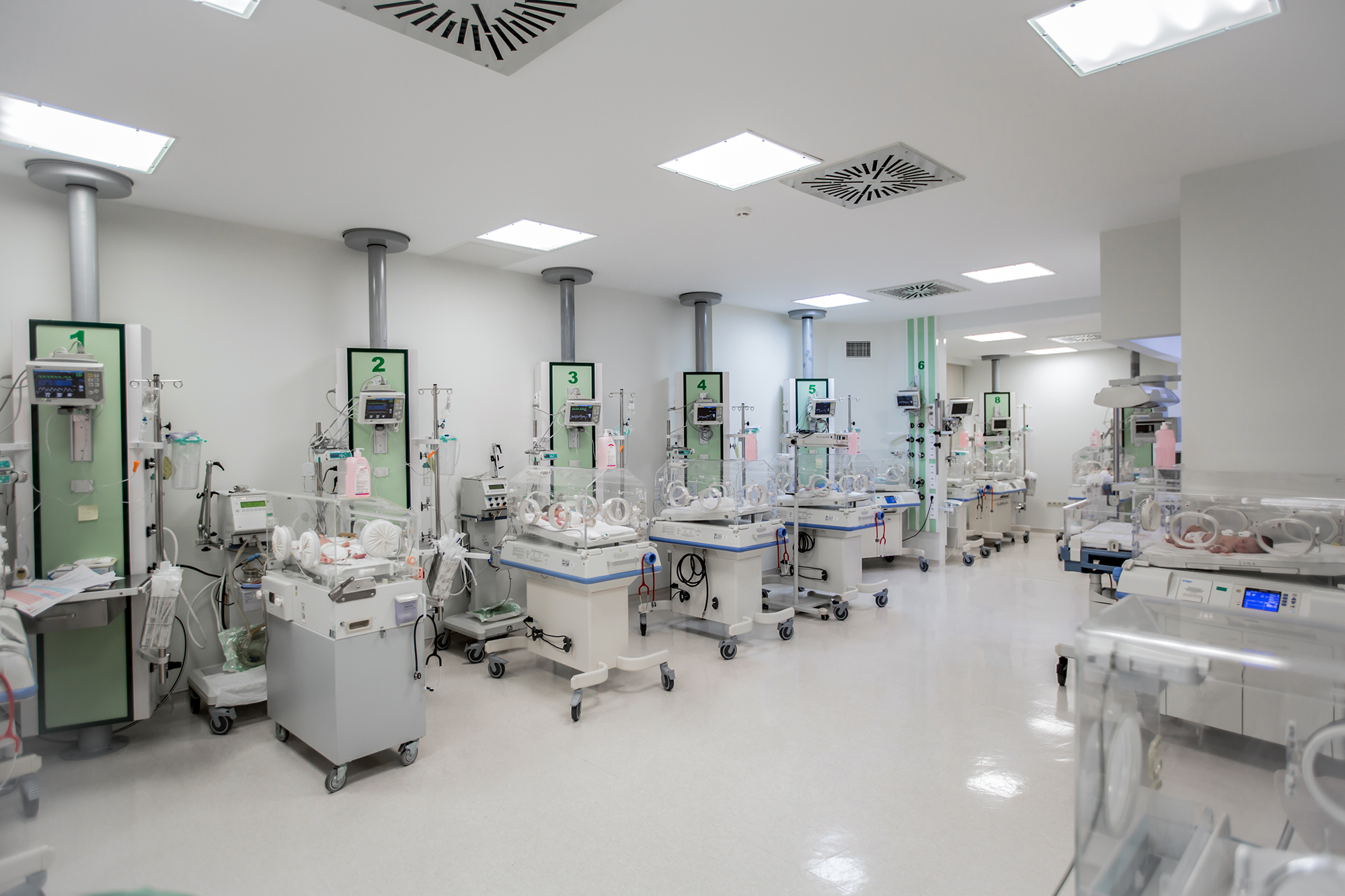Although Florida has spent millions of dollars on maternal and infant health, its infant mortality rate has remained nearly stagnant for about a decade. In that time, the rate of births to mothers with no prenatal care has risen, according to state data.
Cindy Krischer Goodman, health care reporter for the South Florida Sun Sentinel, said infant mortality among Black babies is double that of white babies.
“In some counties in Florida, the risk of prematurity is much higher for babies of color. And a lot of that has to do with the health of the mother. So when you do go into NICUs, you’ll see a high proportion of the babies in NICUs are Black or brown. And that’s particularly true in the rural communities of Florida,” Goodman said Friday on The Florida Roundup.
She explained how a lot of infant deaths are due to premature births.
“Those babies that are born early within possibly only halfway through pregnancy, the youngest of the premature babies are the ones that are at the greatest risk. And those are also the babies that typically need significant interventions.”
Despite that, Goodman said Florida hasn’t addressed the issue.
“Wwhen the problem was first discovered, they started doing a lot more, they started actually giving a lot more attention and a lot more funding to it. But I think in the last 10 years, the funding has stabilized,” Goodman said. “And the attention hasn’t been there.”
She said while Florida funds resources after babies are born, some of the money needs to go to prenatal care.
“The majority of the money goes to Healthy Start, which is actually a very good program. However, it’s under-resourced,” Goodman said. “There’s not enough boots on the ground, so to speak, there’s not enough people going out into the community to help the women who need the resources and to actually educate the women who become pregnant that they need to get prenatal care.”
A story from Jacksonville
Goodman recounted the story of Tiffanie Williams, a mother who buried her son, Liam, in Jacksonville three days after his birth.
“She had tried to speak up to her doctor many times to say that there was something wrong,” Goodman said. “She said the doctor never took her seriously. Tiffanie ended up going into birth prematurely. And her baby died. I believe her baby died before it was even born.”
Goodman said Williams’ story is like many across the state.
“That was a very common complaint that I heard over and over again, from women, pregnant women in Florida, who just told me, ‘The doctors don’t listen, they don’t listen. I tell them that something’s wrong, and they don’t listen.’ It’s unfortunate,” Goodman said. “I think that’s one of the changes that we need in health care, we need to get doctors to listen more to their patients.”
These stories speak to the fear Goodman said patients have toward the health care system.
“There’s definitely a systemic mistrust of the health care system in general, based on some historical trends, especially with more vulnerable or marginalized populations, such as Black or brown women with their interactions with medical care,” Dr. LaRae Brown said on The Florida Roundup. Brown is the medical director at UF Health Women’s Specialists-North and chief of the division of obstetrics and gynecology at UF Health North in Jacksonville.
“This is a very heartbreaking situation to think that in an industrialized country with numerous hospitals and physicians that there are still barriers to patients obtaining prenatal care.”
One of those barriers is a lack of health care insurance, as Goodman said not all pregnant people are on Medicaid to begin with.
“So by the time they get Medicaid, they’re late into their pregnancies. It’s apparently a very frustrating, time-consuming process,” Goodman said. “And some of the women who have Medicaid are finding that the doctors don’t want to take them because their reimbursement rates are too low. So when we have this small amount of providers and big demand, they’re going to take the women who have good private insurance first. It’s a lot of different things happening at once. And these women end up in the emergency room often, or in labor and delivery having never had prenatal care.”
Dr. Rodrigo Ruano, director of the UHealth Jackson Fetal Care Center in Miami, said situations like these are why it’s important for patients to have access to and start prenatal care as soon as possible.
“That’s an opportunity for us to map and actually diagnose problems like diabetes, hypertension, that can impact in the fetal life,” Ruano said on The Florida Roundup.
He stressed the need for a multidisciplinary approach: “Once we have a complication, for example, a patient has diabetes, we need to talk to an endocrinologist, we need to make a plan, and that can prevent sometimes preterm deliveries, prematurity.”
Ruano also said starting prenatal care early allows for ultrasounds to confirm the number of fetuses the patient is carrying.
“Second, we can clearly confirm the gestation age. Then we can understand, for instance, another reason of high mortality, infant mortality is smaller babies, or fetal growth restriction,” Ruano said. “So we need to have an idea, and anomalies also. So that’s very important that they have access also to a second trimester ultrasound screen for us to understand if the baby has or not a problem.”
Another barrier patients face is a lack of obstetricians and places to get care.
“At least 20% of the counties in Florida are maternal care deserts, where patients have to travel at least an hour to obtain prenatal care. So if you can imagine, for some of our constituents in this state that are already battling and juggling social, economic, psychological, mental, health issues, it’s just one more burden that prevents that access,” Brown said.
Goodman echoed those sentiments, pointing out how rural hospitals are closing labor and delivery wards, or closing in general. She also mentioned how, with Florida’s recent six-week ban on abortion, there’s may be less health care workers available to deliver babies in the future.
“I think we can expect to see more vulnerable babies, vulnerable to infant mortality. We possibly may see obstetricians leaving the state. There’s a lot of concern and fear around health care, maternal health care,” Goodman said.
A way to counteract this, Brown said, is to embrace birth workers like doulas and midwives who can make patients feel more comfortable with the health care system.
“That may be a temporary Band-Aid to bridge the gap to both regain trust and provide access, and I know there’s been some recent legislation about freestanding birth centers to reach those deserts and also just provide a bridge,” Brown said. “Many people may be afraid of physicians and hospitals, so I think that that would be a good start.”
The legislation Brown mentioned is “Live Healthy,” a health care package signed into law in March. It was a priority of Senate President Kathleen Passidomo.
Goodman noted that one part of the bill allows birthing centers to do low-risk cesarean sections.
“She’s increased the funding for labor and delivery services,” Goodman said, referring to Passidomo. “So that should prevent, hopefully prevent more labor and delivery wards from closing. At least 20 hospitals have closed their labor and delivery wards in the last few years.”
Ruano also recommended a preconception consultation, or an appointment to discuss a patient’s health prior to pregnancy.







